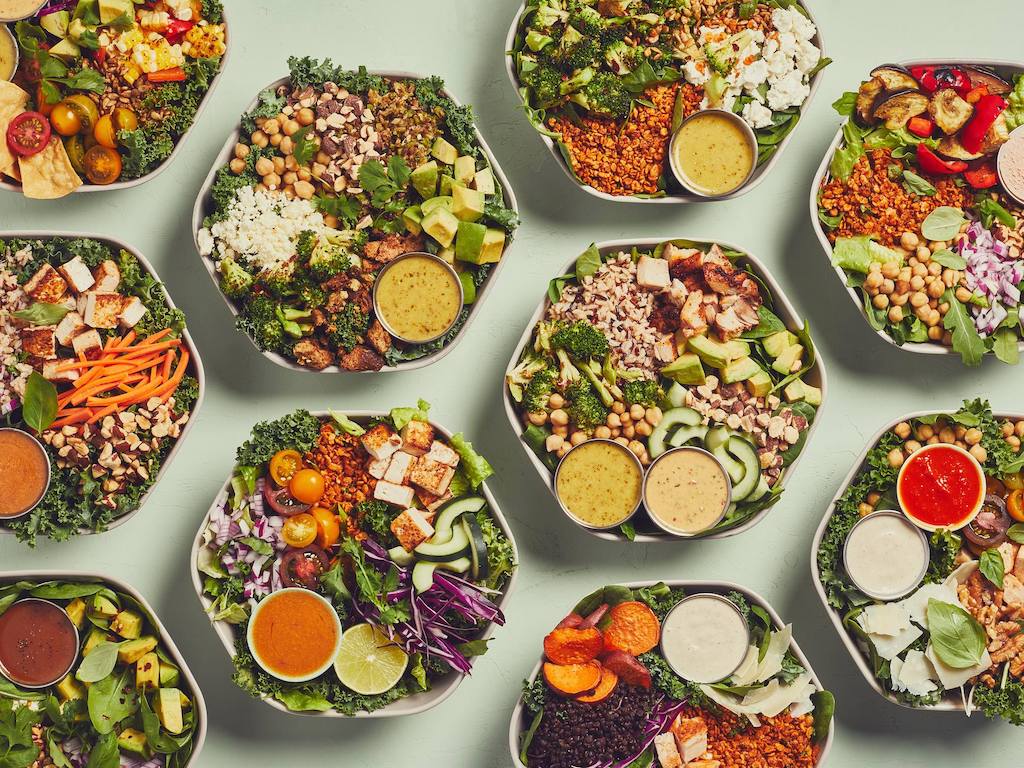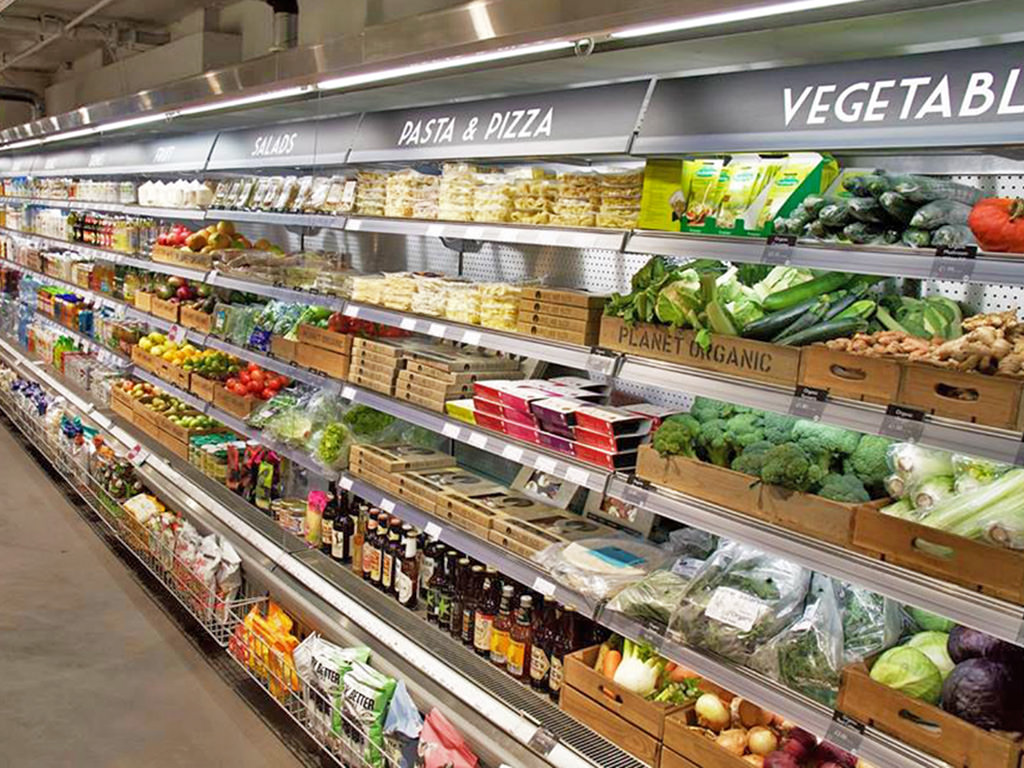5 Mins Read
What’s in a label? Here’s why organic labeling and logos matter—and what they actually mean.
We always need more facts as conscious consumers. We do not live in an ideal world. There is no choice you can make at the grocery store that does not come with some compromise or another. There are many different factors to consider when buying produce. Here are the ones that come up frequently in debates:
- Cost: the most important factor for most of the world, and the only factor that matters if you have very little budget.
- Taste/Quality: this is obviously subjective. We have spoken to Michelin-starred chefs who swear by non-organic farms. Everyone will have a different viewpoint on this though most agree the fresher the better, and seasonal produce unmatched taste.
- Nutrition: studies show that organic produce tests somewhat higher than conventional for certain nutrients, but it bears mentioning that those studies do not take into account produce that travels across the world. We really don’t understand enough about what happens to our produce on airplanes and cargo ships.
- Freshness: how recently was it harvested? You can’t beat local farms on that front.
- Environmental Impact: air-flown imported produce costs 500 times more in carbon footprint than locally grown.
Everyone does different math depending on the factors that matter most to them, and we sincerely believe that you have to make choices based on what’s best for you and your family.

In addition to Green Queen, founders Sonalie & Tracy also run internet startup Ekowarehouse: a global B2B trade platform for certified organic products, sort of like an organic Alibaba.com. Here are some facts that we can share, in no particular order, based on five years of study, research and analysis.
- Hong Kong has no official organic regulation. There is no government-endorsed regulation or label or program for organic farming.
- Hong Kong has very poor “Truth in Advertising” laws. This means that it is technically legal for a company to use the word organic on their product label without any supporting evidence. In the United States, using the word ‘organic’ on your product label without displaying the USDA Organic logo and the name of your certifying agency will result in a minimum fine of USD 10, 000.
- HKORC (Hong Kong Organic Resource Centre Certification Ltd) is a non-profit and non-government effort by Baptist University Hong Kong to create an organic certification regulation framework for Hong Kong farms, fisheries and finished products. HKORC does receive some of its funds from government programs but it is not officially endorsed or managed by the Hong Kong government. There are currently around 130 certified Hong Kong organic farms, one certified aquaculture (fish farming) company and less than 5 certified finished product brands. These certificates can be verified with HKORC on this page.
- The HKORC organic standards are accredited IFOAM (International Federation of Organic Agriculture Movement), an international lobby for organic farming. They are not a regulator, they are not a certifier, they are not a label. They lobby governments all around the world to promote the organic farming cause. They also send teams to countries to help them set up organic agricultural standards. They have been instrumental in working with NGOs/NPOs and governments in Asia, Africa and South America to help create organic farming standards, and accrediting the resulting organic program. For example, New Zealand’s Biogro, a non-governmental program and certifying agency, is also accredited by IFOAM, so standards are similar to those of the HKORC.
- Organic labels/logos that you see on product packaging refer to a particular program of organic regulations, so USDA Organic represents the organic standards of the US National Organic Program (NOP) and EU Organic represents the standards issued by the European Commission (norm EC 843/2007). Some organic labels are governmental, some are non-governmental (like HKORC or Soil Association).
- Organic labels are not issued by governments. There are organic certifying bodies/agencies (like Ecocert, Control IMO, Ceres, BCS, SGC to name a few) who conduct third party testing on farms and are accredited by the government to issue an organic certificate to show that a farm’s produce meets a specific regulation. Organic certifying bodies are usually for-profit. Crucially, organic certifying bodies can issue their own organic labels too. For example Ecocert issues organic beauty product labels. These can be, but are not always, in line with a specific set of organic regulations.
- There are some certifying agencies that conduct the testing AND issue the label: for example the HKORC, and the UK’s Soil Association. That being said, in order to market UK products in Europe, they are required by law to have the green EU Organic flower logo on their product. The Soil Association’s logo is not enough.
- Organic products are only as good as the people handling them. Chain of custody is an incredibly important consideration when assessing final products. How many different people touched the produce? How many different warehouses did it go through? How many airplanes/trucks/cars did it sit in? This is why locally grown produce has an appeal for many consumers. The amount of handling, the distance traveled, the packaging… all is minimized when you are buying from local farmers.
- Radiation levels can be high in airplanes. So if your produce is sitting in airplanes…well you can figure out the consequences.
- Yes it is true that there are fake organic certificates out there. Since founding our organic food startup Ekowarehouse, we have helped to shut down three companies that were using fake organic certificates, but this is very rare. To date, we have verified 4, 000 certificates and only found those three fakes. Most certified organic products are real.
- Most organic regulation allows for certain types of “natural” pesticides (the umbrella term for pesticides, herbicides, fungicides, etc), while prohibiting synthetic pesticides. Therefore consumer watchdogs that test for pesticides will find them on certified organic products. While the media’s headlines are alarmist, this is not out of line with the regulation.
- Foreign organic products cannot be sold in China with a visible organic label (like USDA Organic or EU Organic) unless they successfully apply for certification under China’s national organic program and get the resulting China Organic logo. There are many different certifying agencies in China that can help conduct testing for the China Organic regulation. NASAA (National Association for Sustainable Agriculture, Australia), one of Australia’s two main certifying bodies, is accredited to certify for China Organic.
- Australia does not have an official government organic program though it does have official organic regulation standards. The two biggest certifying agency/bodies both test and issue the certificate: NASAA and ACO (Australia Certified Organic).
- Not all organic programs cover all types of agriculture and products. Some only cover plants, whilst others also have regulations for beekeeping, aquaculture and animal husbandry. The USDA Organic seal covers beauty & household products whilst the EU Organic one does not.
Image credit: Planet Organic’s Facebook page.




